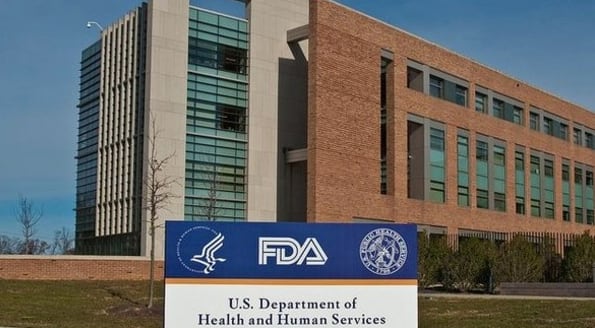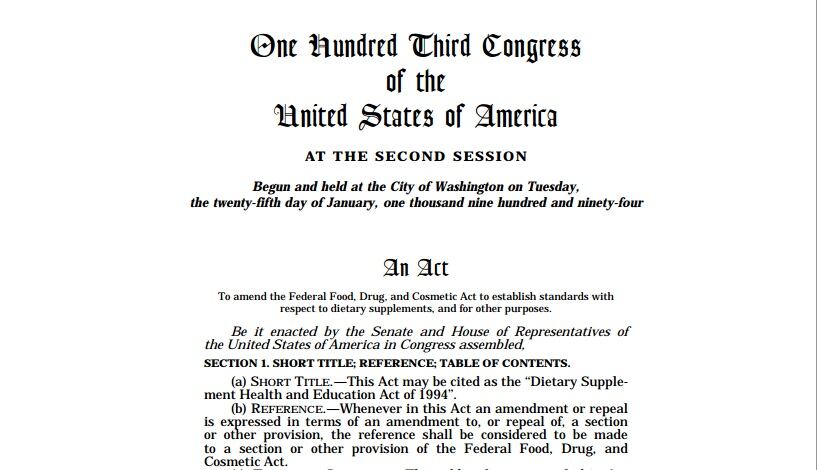DMHA, or dimethylhexamine, is a stimulant ingredient that goes by many names. Those mentioned in the warning letters include 2-aminoisoheptane, 1,5-DMHA, 2-amino-6-methylheptane, 1,5-Dimethylhexylamine, 2-Isooctyl amine, and Octodrine.
DMHA started as drug ingredient
According to a review paper published a little more than a year ago in the journal Brain Science, DMHA was originally developed as a nasal decongestant in the 1950s, but had not been on the market for many decades. It was revived in recent years by product formulators seeking new sources of stimulants in the wake of the banning of ephedra and DMAA.
The authors noted a relative paucity of peer reviewed science on the ingredient. But what they were able to find featured a list of side effects that included mood swings, tremor, concentration deficiency, over-stimulation, energy crashes, anxiety, high blood pressure, dyspnoea, rapid heartbeat and heartburn that were reported in the six to eight hours after ingestion. Other less frequent side effects include blepharospasm (twitching eyes), a rise in blood pressure and hyperthermia.
Prominent industry critic Dr Pieter Cohen, MD, and frequent collaborator on peer reviewed papers outlining dodgy ingredients in teh dietary supplement industry published a paper on DMHA last summer in the Journal of Pharmaceutical and Biomedical Analysis. That paper confirmed the presence of DMHA in some of the products his team tested. While there are some disputed botanical sources for this ingredient, the research, which was conducted in concert with experts from the University of Mississippi, confirmed that the DHMA found in the supplements was of synthetic origin.
FDA noted in the warning letters that DMHA does not tick off any of the boxes for being a legal dietary ingredient. There is no evidence that it was on the market prior to the DSHEA grandfather date of Oct. 15, 1994. Failing that, there is no NDI notification on file for the ingredient. And the agency said it does not appear that any company or individual has compiled a GRAS dossier on the ingredient, whether self affirmed or one that has been submitted to the agency.
“The FDA has been aware of the presence of the drug octodrine in supplements for almost two years. Octodrine was approved as an inhaled pharmaceutical by the FDA in the 1940s and used as an oral drug in Germany for decades. While the warning letters are welcome developments, the question of why the FDA took two years to warn consumers about the presence of a pharmaceutical drug sold as a dietary ingredient remains unanswered,” Cohen said.
Cohen said he notified FDA about octodrine in dietary supplements in 2017 after finding it during research he did with NSF. And he wrote an opinion piece in JAMA about FDA’s slow enforcement, a message he reiterated last week during a talk at the 19th annual International Conference on the Safety of Botanicals held in Oxford, MS.
Phenibut cited in three letters
The ingredient cited in the other three warning letters is called phenibut. Once again, this ingredient has many names, including 4-amino-3-phenylbutyric acid HCl, fenibut, phenigam, PhGaba, phenigamma, phenygam, 4-Amino-3-phenylbutanoic acid, β-(Aminomethyl)benzenepropanoic acid, beta-(Aminomethyl)hydrocinnamic acid, and β-phenyl-γ-aminobutyric acid. This stimulant was reportedly developed in the Soviet Union in teh 1960s and has been used to treat a number of conditions including anxiety.
It has never been approved for use as a drug in the US. Nor, like DMHA, has it cleared any of the regulatory hurdles for being classified as a legal dietary ingredient.
Last November four of the trade organizations involved in the dietary supplement industry (CRN, AHPA, UNPA and CHPA), issued a warning to consumers about the existence of phenibut in products marketed as dietary supplements. At that time the Dietary Supplement Label Database maintained by the National Institutes of Health listed two products branded as phenibut. At least one of these products seems still to be for sale and was not mentioned in the warning letters published by FDA.
FDA also announced yesterday the inauguration of a rapid response tool to communication concerns to consumers about questionable ingredients. It also released an ingredients advisory list.
Continued enforcement will be key
Attorney Marc Ullman, of counsel with the firm Rivkin Radler has commented often on FDA’s indifferent enforcement of the NDI provision, said the warning letters are at least a step in the right direction. But it remains to be seen how much priority this will be given in the future.
“So now they sent out eight warning letters this morning on DMHA, and three on phenibut. Interestingly, I don’t see either on this [Advisory] list. For this to have any real meaning, they need to get these ingredients on this list, or substances—I don’t even want to dignify them by calling them ingredients,” Ullman told NutraIngredients-USA.
“They’re giving broad public notice that FDA believes DMHA and phenibut are illegal ingredients, and any company that continues to sell them needs to get the message that they may be subject to prosecution. But if all you do is publish a list, and then do nothing, there’s no deterrent effect. Nothing changes,” he said.
The list of the recent warning letters can be accessed HERE.




